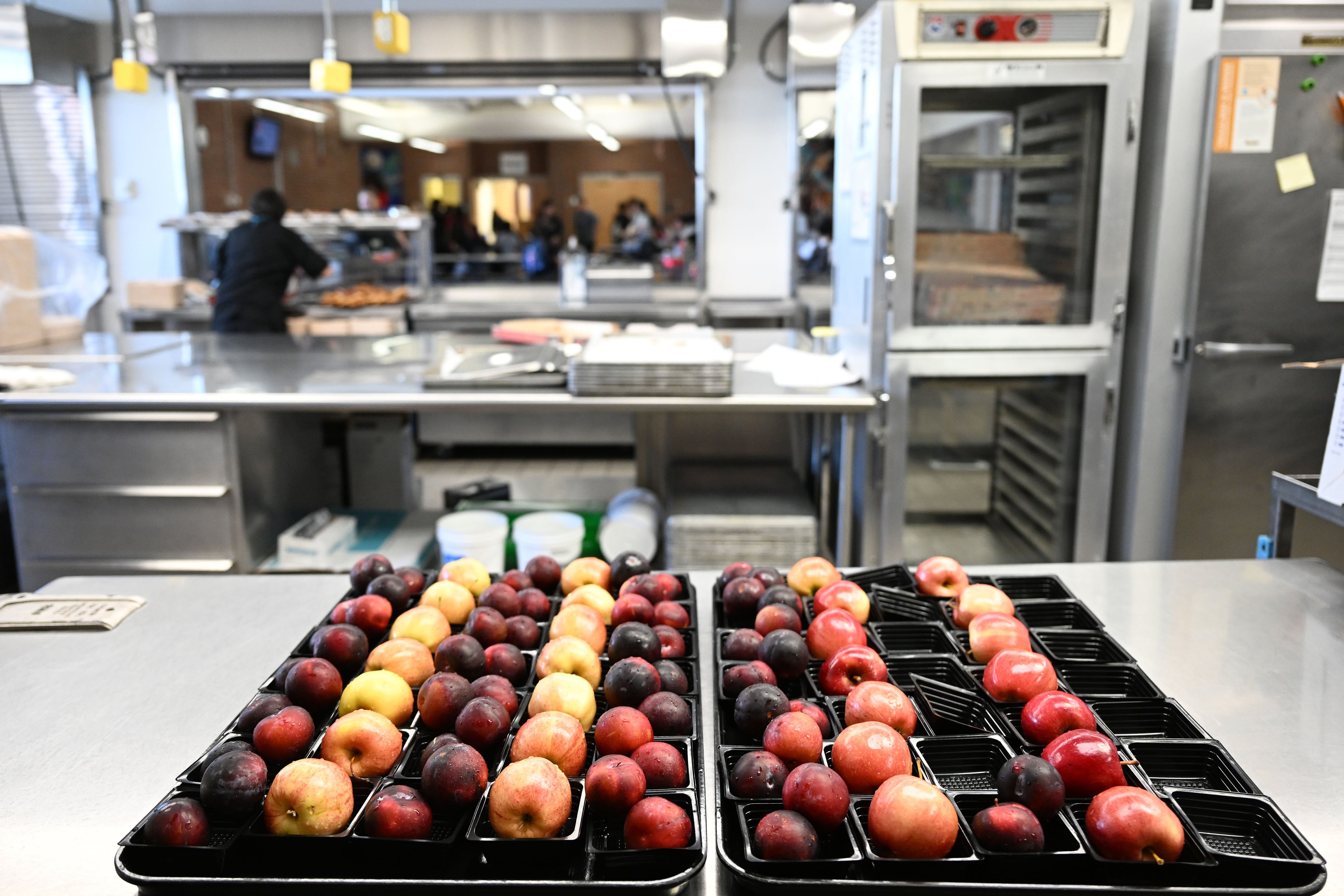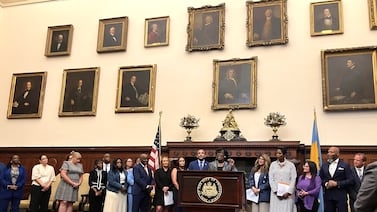Sign up for Chalkbeat Colorado’s free daily newsletter to get the latest reporting from us, plus curated news from other Colorado outlets, delivered to your inbox.
Colorado Gov. Jared Polis on Wednesday criticized the U.S. Department of Agriculture for eliminating more than $13.1 million in funding for programs that help Colorado schools and food banks buy food from local farmers.
“By cutting this funding, the Trump Administration is taking away healthy meals from school children and slashing contracts Colorado farmers depend on to support their businesses and workers,” Polis, a Democrat, said in a statement. “Instead of helping communities put food on the table, this decision pulls resources from schools, food banks, and Colorado families.”
Colorado Department of Education spokesperson Jeremy Meyer said the department was notified by the USDA of the cancellation of a grant known as Local Food for Schools. Politico reported earlier this week that the USDA ended the $660 million Local Food for Schools Cooperative Agreement Program along with a similar program that supported food banks.
Colorado was set to receive $5.9 million for school districts and $1.7 million for child care centers through the program before the funding was eliminated, Polis' office said in a press release. The state was set to receive $5.5 million for food banks, the release said.
The Colorado education department already distributed $2.6 million in federal funding through the Local Food for Schools program between September 2022 and February 2024, Meyer said.
The department was planning to open the application process for another round of funding in May, Meyer said, and had “shared information about this funding opportunity with school districts in January.” None of the previous grantees will lose any money, he said.
The $2.6 million was distributed among 33 Colorado school districts and schools, according to a list provided to Chalkbeat by the state education department. The grants ranged from $298 for the tiny 769-student Trinidad School District #1 in southern Colorado to more than $986,000 for the 27,000-student Boulder Valley School District along Colorado’s Front Range.
Carolyn Villa, the food service director for the Boulder district, said in an emailed statement that the district has long sourced food from local growers when possible and will continue to do so.
“While the cancellation of local food funding programs is disappointing, it does not significantly impact our efforts,” Villa said. “The funding we received from these programs was distributed over multiple years and represented only a portion of our total investment in local food sourcing.”
Colorado’s largest school district, 90,000-student Denver Public Schools, received $106,000 through the Local Food for Schools program, according to the list. District spokesperson Scott Pribble said Denver schools spent the money on local produce.
This story has been updated with new funding figures from Gov. Jared Polis' office and with a comment from the Boulder Valley School District.
Melanie Asmar is the bureau chief for Chalkbeat Colorado. Contact Melanie at masmar@chalkbeat.org.







